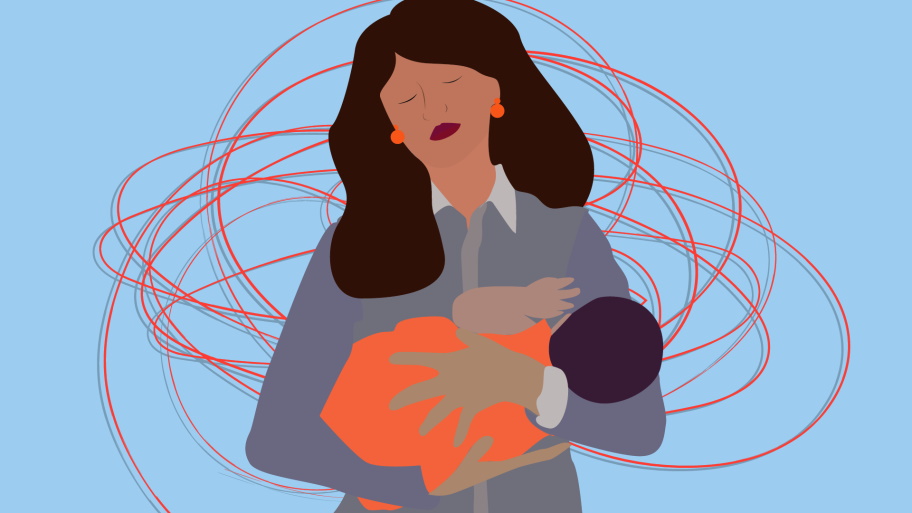Home » Tips for a Happier Family » Why Intrusive Thoughts Plague New Moms

Intrusive thoughts are a common occurrence for new moms. While there is no single cause for these thoughts, they can be troubling and unsettling. Therefore, it is important to understand why intrusive thoughts plague new moms and how to deal with them. By understanding these thoughts and taking steps to address them, you can minimize their negative impact on your life.
Intrusive thoughts are a normal part of postpartum life, but they can be scary and overwhelming for new moms. Here’s what you need to know about intrusive thoughts and how to cope with them.
How do new moms cope with OCD and intrusive thoughts?
These kinds of thoughts are just a part of postpartum life for many new moms. They’re called “intrusive” because they can feel like they’re taking over your mind, often hard to shake.
If you’re having intrusive thoughts, you’re not alone. It’s estimated that up to 70% of new moms experience them.

There are a few things that can contribute to intrusive thoughts, including:
Hormones: The hormonal changes of pregnancy and postpartum can play a role in intrusive thoughts.
Stress: Stressful life events, like a difficult delivery or traumatic birth, can trigger intrusive thoughts.
Sleep deprivation: When you’re not getting enough sleep, your mind is more vulnerable to intrusive thoughts.
Anxiety: If you have anxiety or depression, you may be more likely to experience intrusive thoughts.
There are some things you can do to cope with intrusive thoughts, including: Identify your triggers: What sets off your intrusive thoughts? Once you know what triggers them, you can try to avoid those situations. Talk about it: Find a trusted friend or family member to talk to about your intrusive thoughts. Just talking about them can help to lessen their power. Write them down: Keeping a journal of your intrusive thoughts can help you see that they’re not as scary or overwhelming as they seem. Practice mindfulness: Mindfulness can help you focus on the present moment and let go of intrusive thoughts.
If you’re struggling with intrusive thoughts, don’t hesitate to reach out for help. Talk to your doctor or a mental health professional for more support.

Overcoming postpartum OCD: my battle with intrusive thoughts and how I won
It’s been almost a year since I had my daughter, and in that time, I’ve experienced some of the happiest moments of my life. But along with the joy of motherhood came something I wasn’t expecting: postpartum OCD.
For the first few months after my daughter was born, I was consumed by intrusive thoughts. No matter how hard I tried, I couldn’t shake them from my mind. They were always there, lurking in the back of my mind, ready to jump out at me when I least expected it.
I was scared, and I didn’t know what to do. But then I realized that I wasn’t alone. There are other mothers out there who are going through the same thing.
With the support of my husband and my family, I decided to fight back against my OCD. It wasn’t easy, but I did it. And now, I want to help other mothers struggling with postpartum OCD.
Knowing that you’re not alone if you’re struggling with intrusive thoughts. There is hope, and you can overcome this. Here’s my story.
I never expected to have OCD. I was always a pretty laid-back person, and I never really worried about things too much. But after I had my daughter, everything changed.
It started with small things. I would worry that I had left the oven on or unlocked the door. I would check and recheck things over and over again, to be sure.
But then the intrusive thoughts started. And they were awful.
I would worry that I was going to hurt my daughter or that something terrible would happen to her. I would have images of me dropping her or being hurt in some other way.
These thoughts were so real and vivid that it was hard to shake them from my mind. But I tried my best to push them away, and I told myself that they weren’t true.


